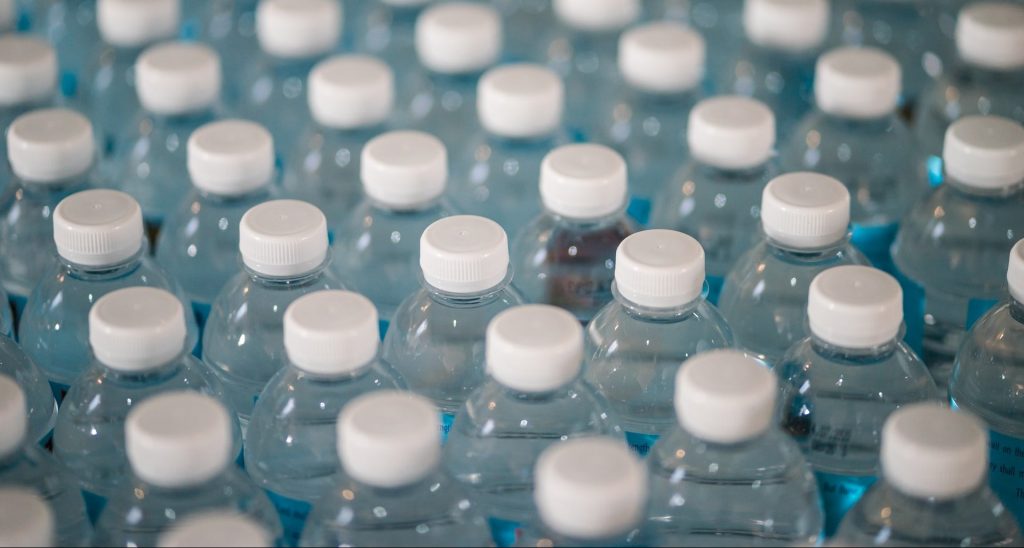In a bid to incentivise the inclusion of recycled materials in plastic packaging production, a brand-new tax has been introduced in the UK, effective 1st April 2022.

When Rishi Sunak announced the Autumn Budget in October, he stressed a desire to mould London and the wider UK into a European hub of innovation and sustainability; with the Government’s Plastic Packaging Tax (PPT) on the horizon, this is looking all the more likely.
PPT: What is it?
PPT is a new tax focused on plastic packaging manufactured in, or imported into, the UK.
From 1st April 2022, all finished, filled or unfilled plastic packaging will be subject to PPT – calculated at £200/tonne – if any plastic components contain less than 30% recycled plastic. This also applies to packaging made up of different materials, where the overall mass is predominantly plastic.
The aim of this new tax is to encourage an increased uptake of recycled material by UK businesses to eradicate virgin and single-use plastics. It is thought that the implementation of PPT will increase the demand for environmentally-friendly packaging, thus stimulating the collection and recycling of plastic waste to divert it away from landfill or incineration.
Where else is getting serious about sustainability?
- The EU has an €800/tonne levy in place for member states – not businesses – that came into effect 1st January 2021.
- Italy is set to enact a tax on €450/tonne of virgin plastic used either during the manufacture or importation of single-use plastic in January 2022.
- Spain proposed a tax on €450/tonne of non-reusable plastic packaging, originally scheduled to begin in 2021 but now likely in early 2022, instead.
As other EU member states adopt similar taxation systems and new trade deals for a post-Brexit UK are agreed, it’s possible that the UK’s legislation for PPT may feature some flexibility to allow for future change.
Which sectors will be most affected?
Any sector that uses plastic packaging will be affected by this new tax – whether it’s biodegradable, compostable, or oxo-degradable plastic.
The tax is applicable in cases where the packaging contains goods (such as drink bottles or crisp packets), is primarily used for storage (including glasses cases), and in instances where the packaging is an integral aspect of the goods (such as printer cartridges or tea bags).
As such, the following are those industries most likely to be affected by the tax:
- Packaging manufacturing
- Cosmetics
- Consumer goods and retail
- Chemical transportation and production
- Food and drinks
- Pharmaceutical
- Industrial manufacturing
Are there any exemptions?
PPT applies to all finished plastic packaging components – filled or unfilled – that contain less than 30% recycled plastic. The broad nature of this new tax thus means that, for a swathe of sectors, industries, and businesses, it’s essentially inescapable.
Despite this, there are exemptions. PPT will not be applicable in the following instances:
- When plastic packaging is used in the immediate packaging of a medicinal product
- If it doesn’t meet the 10-tonne threshold
- Where plastic packaging components contain more than 30% recycled plastic
- When the packaging material comprises multiple materials, of which plastic is not proportionately the heaviest when the overall mass is measured
- Where transport packaging is used during the importing of goods
What needs to be done to ensure compliance?
A certain amount of preparation is required to make sure that your business is compliant come April 2022. To aid this process, the government has created Draft Regulations for consideration.
Current information suggests that the sheer broadness of the tax means registration for PPT will be necessary for most businesses – even in cases where the minimum 30% threshold for recycled plastic is met and no payment is needed.
Once registration is taken care of, it’s then crucial to start record-keeping, evidencing, and sampling manufactured or imported plastic packaging, as well as conducting supply chain due diligence. This will be necessary on a component-by-component basis at production-run level, meaning each plastic element of the packaging must be weighed and assessed individually.
Where taxable plastic packaging components are supplied to a customer – including the sale of packaged goods to customers – the person who originally paid the tax is subject to certain invoice requirements. Adaptations to invoice systems and other controls will be needed prior to April 2022.
Steps to take
- Identify which packaging is subject to PPT
- Look up key registration dates and then register
- Use draft regulations to conduct assessment of manufactured or imported plastic packaging (including strategies for weighing components)
- Decide on a method of record-keeping that can be utilised at a production-run level
- Create systems and processes to collate data for compliance, pricing/invoices, contracts, and supply chain due diligence
Taxes can be complex, particularly if they’re unprecedented. If you think your business may be subject to PPT – or are unsure of how to assess whether it is or not – get in touch with our experts today to find out more.




